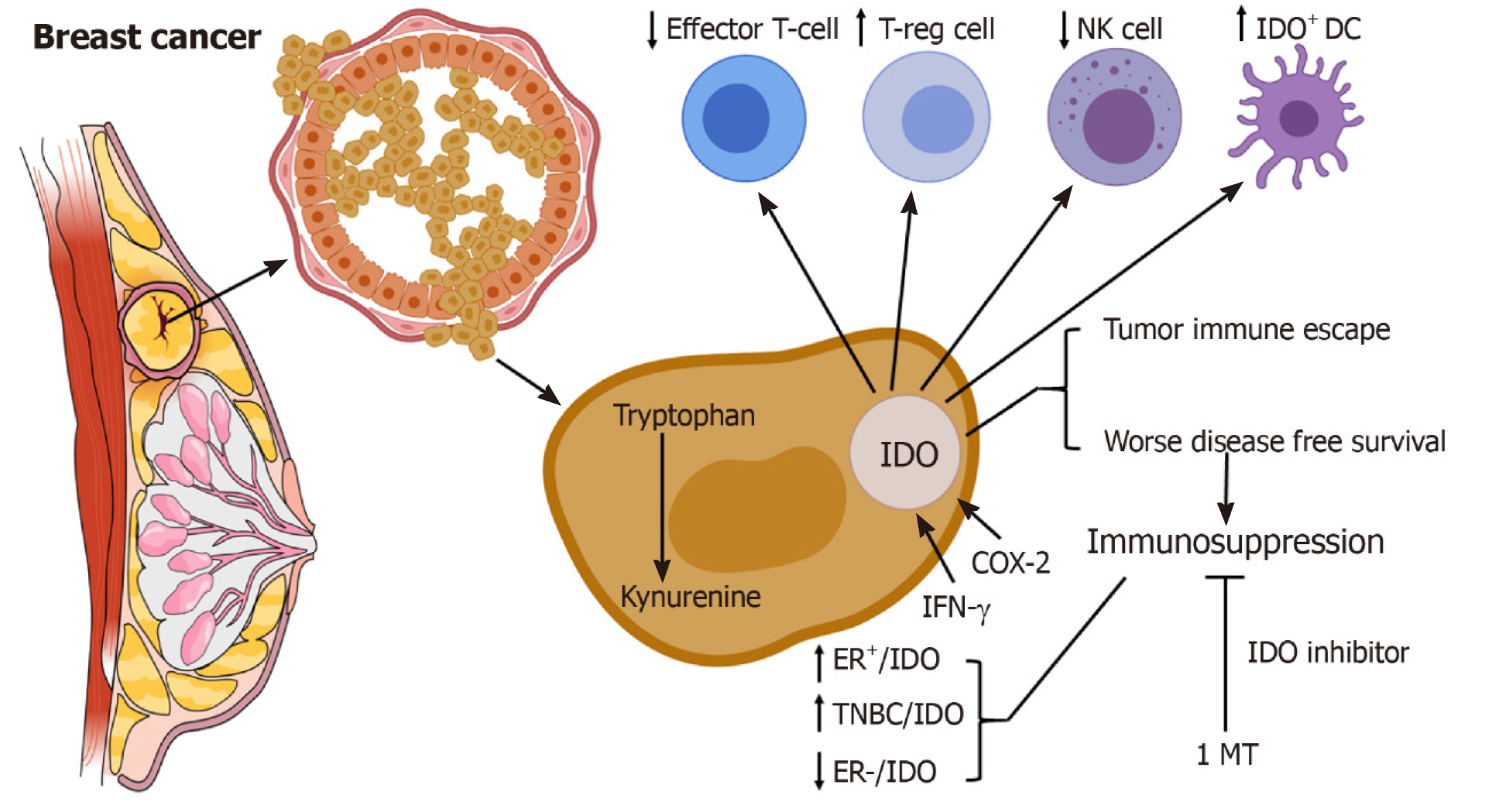Copyright
©The Author(s) 2021.
World J Clin Oncol. Jun 24, 2021; 12(6): 429-436
Published online Jun 24, 2021. doi: 10.5306/wjco.v12.i6.429
Published online Jun 24, 2021. doi: 10.5306/wjco.v12.i6.429
Figure 1 Indoleamine 2,3-dioxygenase inhibition as potential immunotherapeutic strategy for breast cancer.
Indoleamine 2,3-dioxygenase (IDO) is heme-containing immunosuppressive enzyme. IFN-γ is a potent inducer of IDO. Cyclooxygenase-2 expression by tumour cells stimulates intrinsic tumour expression of IDO. IDO degrades tryptophan into kynurenines. Deprivation of tryptophan directly affects the cytotoxicity of T cells. IDO may inhibit T cell immunity by inducing the differentiation and maturation of T-regs. IDO expression could suppress immune responses by blocking natural killer cells. IDO+ dendritic cells are found in breast tumour as well as axillary lymph nodes of these patients. High IDO expression is observed in ER+ tumours than ER- tumours. IDO is expressed in a triple-negative subgroup. IDO expression is associated with tumour immune escape and overall survival of the patients. 1-MT is the pharmacological inhibitor of IDO. IDO: Indoleamine 2,3-dioxygenase; COX-2: Cyclooxygenase-2; NK: Natural killer; ER: Estrogen receptor.
- Citation: Asghar K, Farooq A, Zulfiqar B, Loya A. Review of 10 years of research on breast cancer patients: Focus on indoleamine 2,3-dioxygenase. World J Clin Oncol 2021; 12(6): 429-436
- URL: https://www.wjgnet.com/2218-4333/full/v12/i6/429.htm
- DOI: https://dx.doi.org/10.5306/wjco.v12.i6.429









